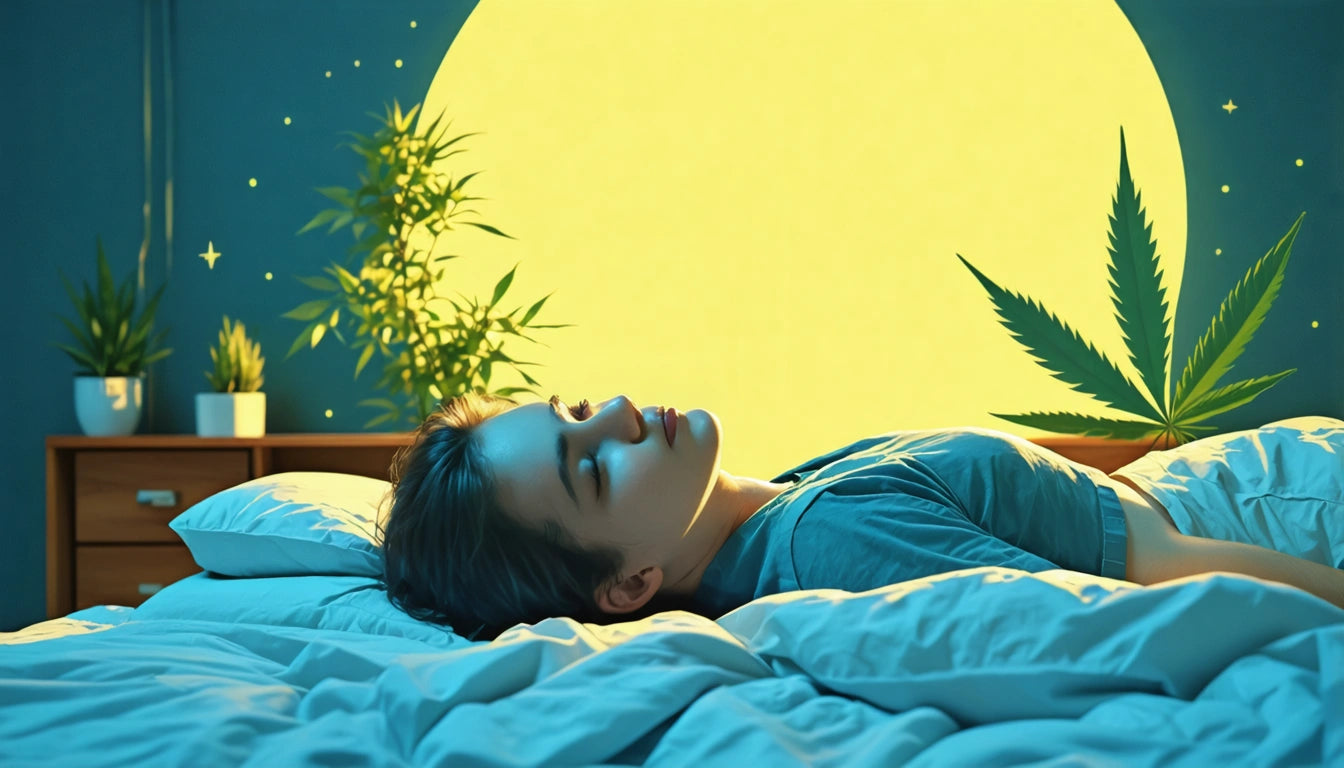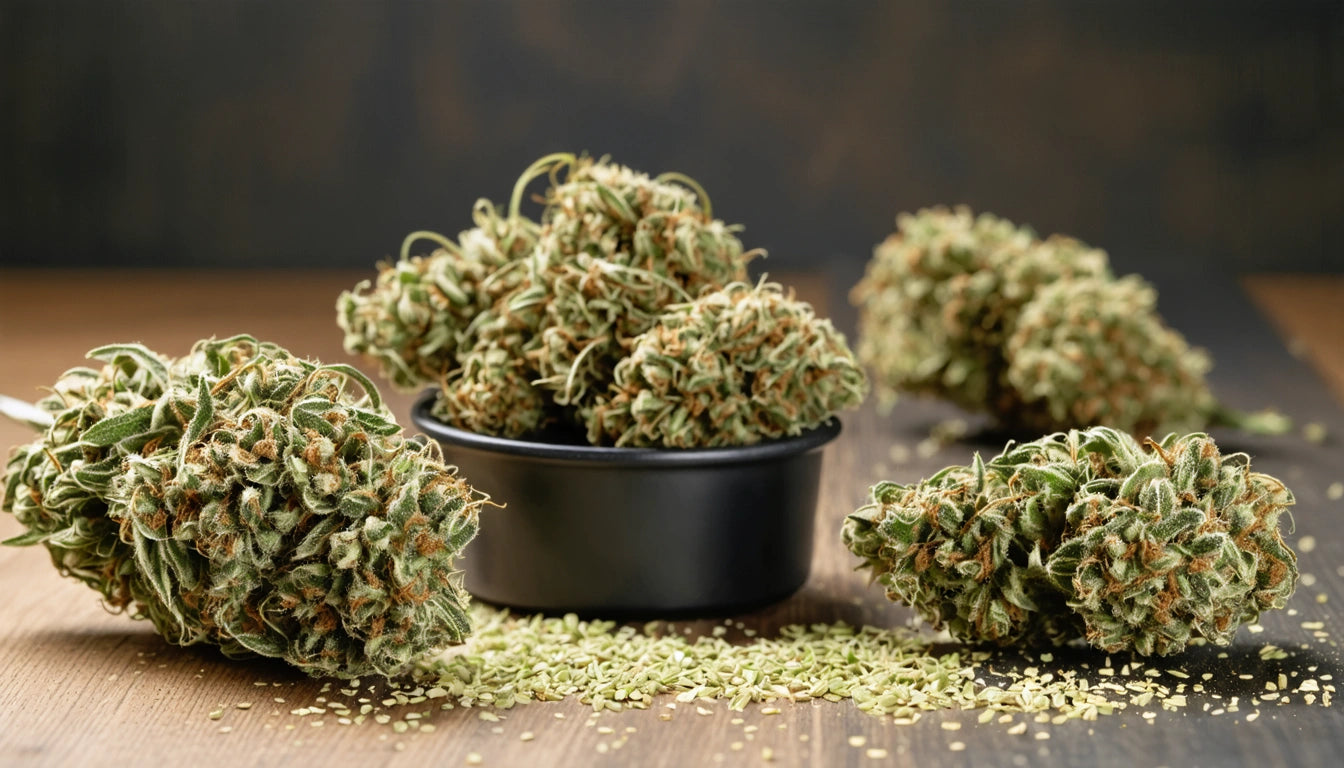Table of Contents
Why Do I Still Feel High Long After Consuming Cannabis?
Experiencing lingering cannabis effects can be concerning, especially when you wake up still feeling high after sleeping or notice effects persisting into the next day. While most cannabis highs typically last between 2-6 hours for inhalation methods, some users report feeling altered for much longer periods. Understanding why these extended effects occur can help you better manage your consumption and set appropriate expectations.
Normal Duration of a Cannabis High: What to Expect
Before exploring prolonged effects, it's helpful to understand typical duration patterns. According to research on cannabis duration, most people experience:
- Smoking/vaping: Effects peak within 30 minutes and typically subside within 2-4 hours
- Edibles: Effects begin after 30-90 minutes, peak at 2-4 hours, and generally last 6-8 hours
- Concentrates: Intense effects that can last 2-6 hours depending on potency and consumption method
When effects persist significantly beyond these timeframes, several factors may be responsible.
Why Your High Might Last Longer Than Expected
THC Storage in Fat Cells
Unlike water-soluble substances, THC is lipophilic (fat-soluble) and stores in fat cells throughout your body. This stored THC can be released gradually, especially during activities that burn fat, such as exercise or fasting. This explains why some people feel high after a workout without recent consumption.
Metabolic Differences
Everyone's endocannabinoid system and metabolism function differently. Some individuals naturally process cannabinoids more slowly due to genetic variations in liver enzymes, particularly CYP2C9, which is responsible for metabolizing THC.
Edibles and Extended Effects: Why You Still Feel High Days Later
The question "why do I still feel high 2 days after edibles" is common among cannabis consumers. Edibles create a different experience because:
- When ingested, THC is processed by the liver into 11-hydroxy-THC, a more potent and longer-lasting metabolite
- This metabolite crosses the blood-brain barrier more efficiently than standard THC
- Edible effects can sometimes last 12+ hours in high doses or sensitive individuals
- Residual grogginess and mental fog can persist for 24-72 hours after high-dose edible consumption
Proper storage of cannabis products is essential for maintaining consistent potency and preventing degradation that could lead to unpredictable effects. Using humidity control solutions for your stored cannabis can help maintain optimal conditions and prevent potency fluctuations that might contribute to unexpected experiences.
The Next-Day High: Causes and Management
Wondering "why am I still high after 24 hours" or "why i still feel high the next day"? Several factors contribute to this phenomenon:
Cannabis Hangover
The "weed hangover" involves lingering effects that aren't quite the same as being high but still feel altered. Symptoms often include:
- Brain fog and difficulty concentrating
- Mild dizziness or disorientation
- Fatigue despite adequate sleep
- Headache or dehydration
Sleep Cycle Disruption
Cannabis, particularly THC-dominant varieties, can suppress REM sleep. When asking "why do I still feel high after I slept," the answer often involves disrupted sleep architecture rather than actual intoxication. This disruption can create a groggy, disoriented feeling similar to a lingering high.
Physiological Factors That Extend Your High
Several physical factors can contribute to prolonged cannabis effects:
Tolerance Levels
Individuals with limited cannabis experience or low tolerance are more likely to experience extended effects. Regular users may wonder "why am I no longer getting high from smoking" while occasional users might ask "why do I still feel high after a couple days."
Hydration and Nutrition
Dehydration and poor nutrition can extend the duration of cannabis effects. Proper hydration helps your body process and eliminate cannabinoids more efficiently.
Medication Interactions
Certain medications that compete for the same liver enzymes can slow THC metabolism, potentially extending effects. Common examples include some antidepressants, antifungals, and antibiotics.
Managing Prolonged Cannabis Effects
If you're experiencing uncomfortably long-lasting effects, several strategies can help:
- Hydrate thoroughly with water and electrolyte-containing beverages
- Consume foods rich in antioxidants and healthy fats
- Try CBD, which can counteract some THC effects by modulating cannabinoid receptors
- Exercise lightly to improve circulation and potentially speed metabolism
- Practice stress-reduction techniques like deep breathing or meditation
- Consider effective strategies to reduce high effects like black pepper or lemon peel terpenes
For those asking "why do I still feel high after a month," persistent effects lasting this long are unusual and may indicate another underlying condition. If cannabis effects seem to last for weeks, consulting a healthcare provider is recommended to rule out other causes.
Understanding why cannabis affects everyone differently can help you better predict and manage your personal response. By paying attention to dosage, consumption method, product quality, and your physical condition, you can reduce the likelihood of experiencing uncomfortably prolonged effects in the future.











Leave a comment
All comments are moderated before being published.
This site is protected by hCaptcha and the hCaptcha Privacy Policy and Terms of Service apply.